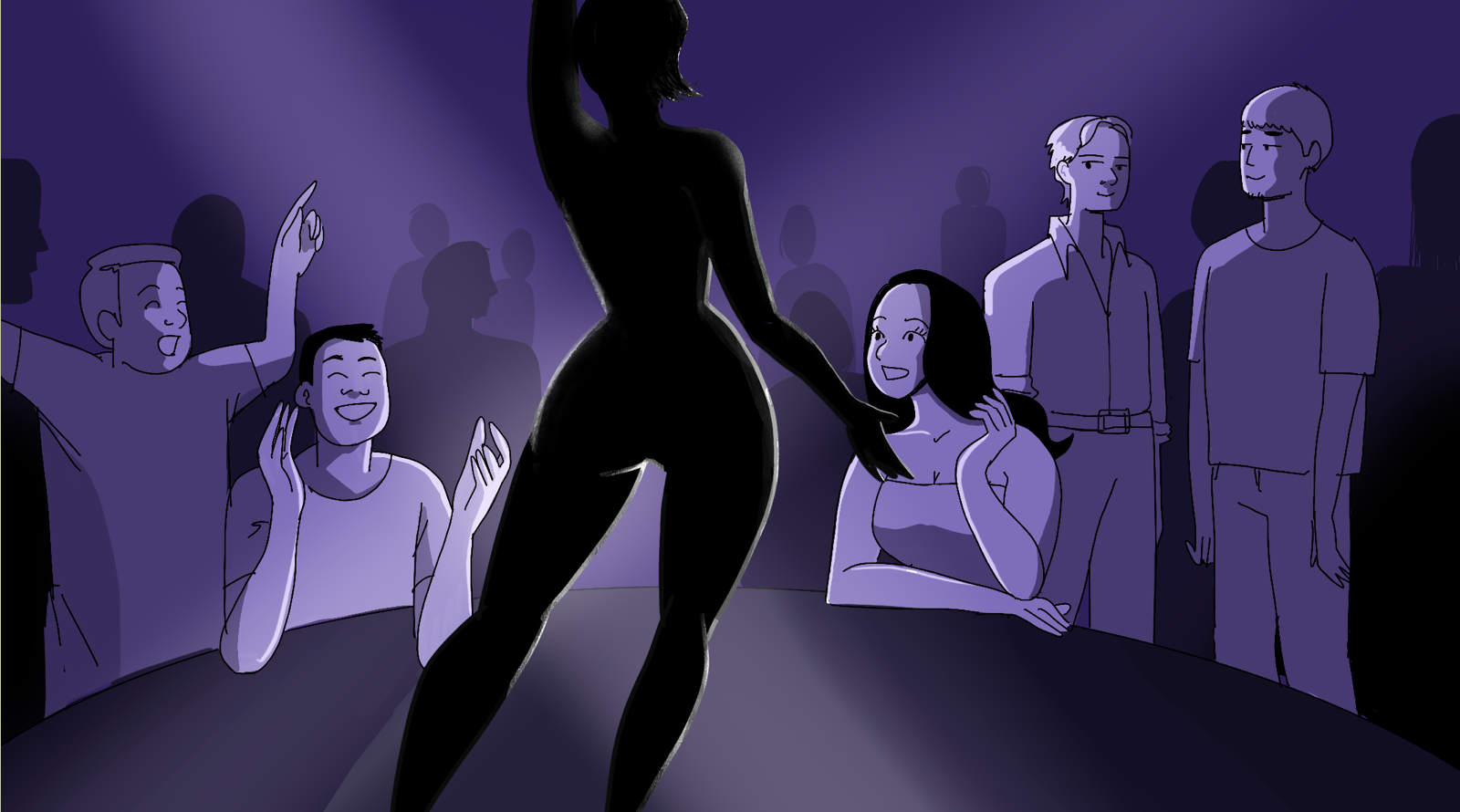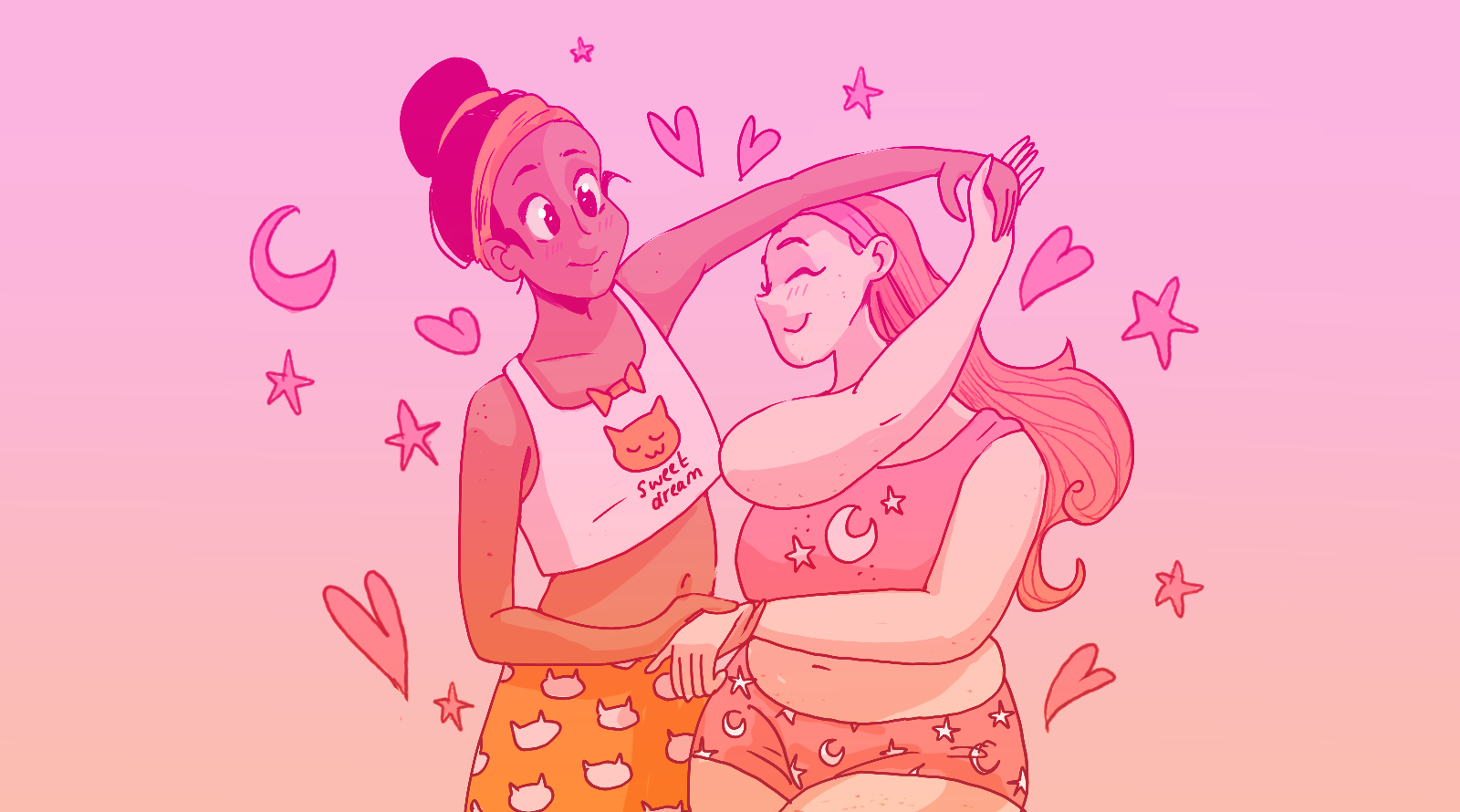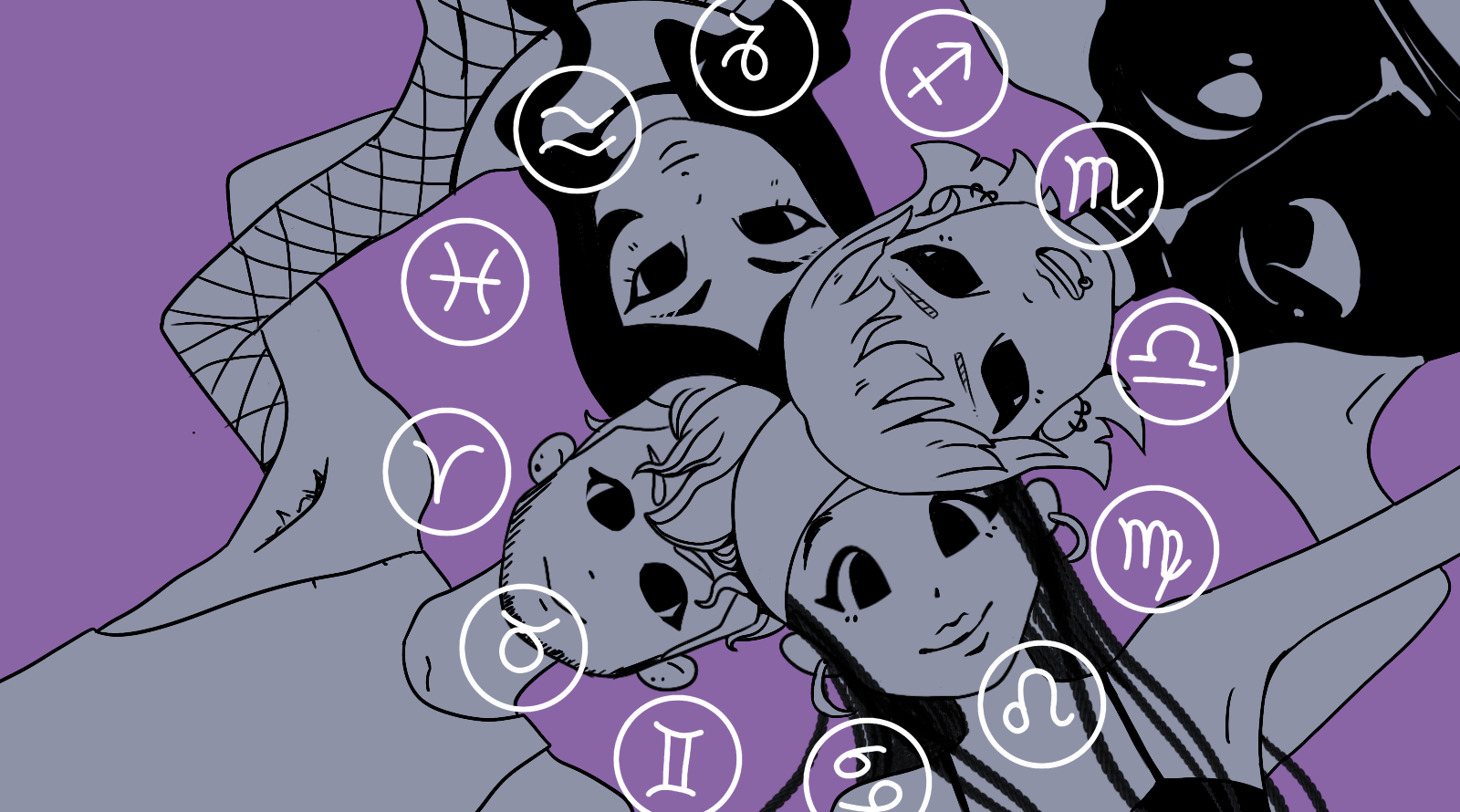I was a customer before being a stripper – a terrible one, to be precise. I was eighteen, I was broke, and I was in Prague without supervision. My high school friend and I had gone on our first independent trip ever to celebrate our coming of age, and we had chosen one of Europe’s strip club capitals. We wanted to try the things only men were allowed to do. We picked a minuscule strip club that didn’t charge for entry, we sat there with one drink for several hours, and we watched the stage in awe, without saying a word.
A few years later the positions switched and I went from being the one watching to being the one dancing on stage. As soon as I started stripping, the biggest concern my friends expressed for my safety was that I would have to work with “certain kinds of men.” Still to this day, on the top list of the frequently asked questions are, “What kind of men visit sex workers?” or , “What do you expect from people who go to those places?” when they hear me complain about a bad night. There are a lot of misconceptions in this regard, and people who are not familiar with the sex industry think that there is just one category of people who visit sex workers: the creepy, lonely, perverse man.
This assumption is not only full of judgment, but it’s also wrong. I was a client too, and I was not an exception – I was also the average client. Even though I didn’t know that strip clubs shouldn’t be in your priority list if you are broke and if you are not going to spend anything on the workers, I still didn’t identify as a creepy, lonely, perverse man. Assuming that clients can only be sketchy individuals, implies and perpetuates a negative view of our working environments. Insulting our working environments indirectly insults us, the people working there. That’s why I think that a destigmatisation of our clientele is one of many necessary steps to destigmatise our job as a whole.
I was a customer before being a stripper – a terrible one, to be precise.
There have been some clients I genuinely had fun with. There have been other clients I had a negative experience with. But mostly, my experiences have been neutral. Sex workers’ clients are very diverse and come from all different backgrounds, and I would like to give you a virtual tour of my strip club so you can meet my customers.
Several tables are occupied by middle-aged men on a business trip. Some come in pairs with their colleagues, others come solo to get away from the boring hours spent on their own in an anonymous hotel room. Then there are the big groups, loud birthday or stag parties. They usually pay for a stage show, where the lucky boy gets to be spanked and stripped on stage. Sitting at the table in the corner, there is a group of teenagers. They are eighteen and it’s their first time visiting a strip club; their hands are shaky and sweaty. And then there is everyone in between: the locals who come to the club every week, the tourists, the woo girls, the couples.
This might be specific to strip clubs and may not be so usual in full service work, but we have a number of women clients and couples. Though working with them is not always necessarily better. I’ve had some women clients get very touchy with me, thinking they didn’t have to ask for consent because they were women. Consent is consent, regardless of gender. When it comes to couples, I had the hottest and most fun experiences in the private booth – but also the most uncomfortable. In some cases, it’s very clear that the girlfriend doesn’t really want to be there, but that she consented to her boyfriend’s suggestion more to be seen as “the cool girlfriend” rather than any real interest in being there.
There are a bunch of different reasons why people decide to pay for sex – even when they could have sexual exchanges for free. Some appreciate the straightforwardness of the encounter: the arrangement is immediate, no time is wasted on dating apps, and they can be sure of what they will get. Other reasons include the desire to fulfill specific fantasies with the emotional and physical know-how sex workers can provide.
There are a bunch of different reasons why people decide to pay for sex – even when they could have sexual exchanges for free.
It’s very hard for me to answer people when they ask me what our average clientele is like because there is no average client. Everyone can be a client, anyone could be a client.
Stigmatising clients has consequences. Stigma comes with shame, and if our clients have the feeling they are doing something morally wrong, they will act accordingly. Not only will this affect the way they treat us, but it will also translate the shame they feel onto the workers. It is not uncommon for me, for example, to have customers who tell me that I am “too smart” to be doing this, or who raise their eyebrows with judgment asking me why I got into this industry. Often it’s their own shame that is talking. On one hand they are demanding our service, but on the other hand they think we shouldn’t be there; this hypocrisy comes from their double standards, but I think it can also be mixed with the shame they feel when visiting us. If society stopped shaming them, they might also stop shaming us, and everyone will benefit from that.
Sex work is like a puzzle. The pieces that comprise it are not only the workers, but also our workplaces and our clients. By judging negatively one of the pieces, the whole puzzle will be affected. I don’t think it’s possible for society to accept sex work if they keep pointing out buyers as inherent wrongdoers. The destigmatisation of our clientele would not only ease that element of shame, but it would also normalise the act of paying for intimate and sexual services and, as a consequence, the act of offering them for money.
I have noticed that a lot of anti-sex work views are built on the (correct) idea that violence against women is wrong, and they associate men who pay for sex with violence. Even though they are right in denouncing violence against our community, they fail to see that a man can also be a client without being violent. If they accepted that, they would also be more able to accept that people do sex work to make a living and that’s ok.
Stigmatising clients has consequences. Stigma comes with shame...
Violence and discrimination against sex workers are real issues. With this piece, I don’t want to deny that creepy, perverse clients exist. But when a client acts disrespectfully it’s not because of some inherent nature of the industry; it’s because they are a product of a society that both permits cis men certain behaviours, while also perpetuating whorephobic attitudes. Where whores are seen as disposable, easy targets that are less deserving of respect. The sex industry is not a bubble, and the people who inhabit it are a mirror of the society that has produced them. Our clients are your family, your friends, your colleagues. They come from your houses, not from outer space.
I want to be able to complain about bad nights without people generalising or projecting. I want to be able to complain about bad work experiences without people taking my words to use them against my whole industry. If you are concerned about sex workers’ safety, advocate for better working conditions and better laws that protect us. If you find our customers’ behaviour obnoxious, educate the people in your life. Stigmatising our clientele won’t help, because ultimately, it means stigmatising us.
Are you a sex worker with a story, opinion, news, or tips to share? We'd love to hear from you!
We started the tryst.link sex worker blog to help amplify those who aren't handed the mic and bring attention to the issues ya'll care about the most. Got a tale to tell? 👇☂️✨





